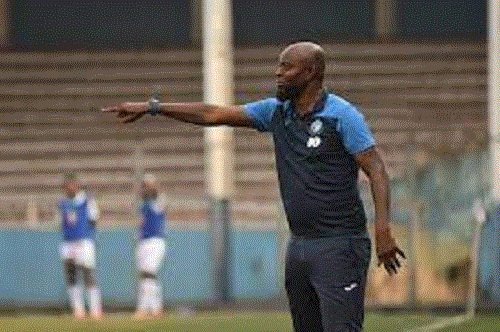Qatar World Cup provides rare source of unity to Arab states

…anger at Western hectoring, giant-killing performances fostered a sense of solidarity
The opening week of the Qatar World Cup was overshadowed by political controversy and high-profile gestures of support for human rights. But what in the Gulf has been seen as western hectoring has also turned the football tournament into a rare thing in the Arab world: a source of regional unity.
“It feels nice to see an Arab country host,” said Mohammed, a government employee in the Saudi Arabian capital Riyadh, after watching his country’s shock victory over two-time World Cup winners Argentina. “I’m proud for sure.”
Arabs have backed gas-rich Qatar’s handling of the World Cup, calling out what they regard as western hypocrisy for criticising the conservative state’s lack of democracy, limits on alcohol and ban on homosexuality — while simultaneously asking Doha for more natural gas to replace Russian supplies and having failed to scrutinise the previous tournament in Russia as aggressively.
“We don’t have as much sexual & political freedom as you do, don’t claim to be democratic, but we are stable prosperous monarchies [that] organise world class events, compete with the best & have the best of everything — so eat your heart out neocolonialists, orientalists & western hypocrites,” Dubai-based political science professor, Abdulkhaleq Abdulla wrote on Twitter.
Despite Qatar’s poor showing on the pitch — the host nation has lost both of its two games — Saudi Arabia’s win over Argentina and Morocco’s victory over Belgium have given Arabs their own giant-killing teams to support.
“A lot of the Arab solidarity has come as a result of the Saudi victory over Argentina — it sent a message to all that Arabs can win,” said Mohammed Alyahya, a senior fellow at the Hudson Institute. “Saudi is a new team, reflecting the 180-degree change in the country, with this new excellence that Saudis want to present.”
Fans on the streets of Doha have also expressed support for Palestinians by refusing to be interviewed by Israeli journalists and social media influencers. Qatar, unlike some of its neighbours, has not normalised relations with Israel but, to accommodate Fifa rules, it has allowed aircraft to transport Israeli media and fans to the tournament.
Difficult encounters between Israeli journalists and Arab and other supporters have gone viral on social media. One Egyptian fan managed to interject “Viva Palestine” into a live interview.
Such encounters underscore the contrast between the elites in countries such as Morocco and the United Arab Emirates who have normalised relations with Israel, and an enduring commitment to Palestinian freedom across the Arab world.
Schisms within the Gulf, by contrast, are receding thanks to a regional buy-in to Qatar 2022.
Less than two years ago, the Gulf states were in turmoil, locked in a three-year Saudi-led embargo against Qatar over charges that it fostered Islamist extremism. Saudi Arabia, the UAE and Bahrain demanded the closure of Doha-based media network Al Jazeera and told Qatar to cut ties with their regional nemesis, Iran.
Since the AlUla Accords of January 2021, which formally ended the embargo, Qatar has repaired ties with its neighbours, especially Saudi Arabia, though relations with Bahrain remain strained and Abu Dhabi has been reluctant to get fully back to normal. Qatar’s emir Sheikh Tamim bin Hamad Al Thani watched the opening fixture of the tournament with the Saudi crown prince, Mohammed bin Salman.
Among many, disdain for Doha’s politics during the boycott has been replaced by enthusiastic backing during the World Cup. “These silly pressures [over human rights] managed to do the impossible — they united the region on something,” said a Dubai businessman.
“When we go to the west, we respect their customs and their laws,” said Mohamed Karam, a real estate agent in Cairo. “And they too should respect our customs and our laws.”
For years, more liberal Gulf societies such as Dubai have adopted a “don’t ask, don’t tell” approach to homosexuality. However, officials fear this delicate balance could be jeopardised if the World Cup-related focus on LGBT+ issues triggers a wider conservative backlash.
“Live your life as you want, but don’t come and wave it in our faces,” said a Dubai-based businessman.
Reactions against the perceived imposition of progressive ideals of sexual tolerance have played out live in Qatar, where Welsh football fans attempting to enter stadiums wearing rainbow bucket hats had their pro-LGBT+ symbols removed by Qatari security guards.
The firm approach of Qatari guards has been acclaimed on social media, where the most senior Islamic cleric in Oman referred to rainbow flags as “emblems of the most monstrous vice”.
After German players covered their mouths in their team photo to protest Fifa’s ban on multicoloured arm bands, many mocked their ensuing defeat in their opening game of the tournament.
“What was once one of the greatest and most respected football teams in the world has turned into politicised clowns humiliated by Japan,” tweeted Nasser Al-Shaikh, a former Dubai government official.
But in Lebanon, which is suffering from compounding political and financial crises, watching the games has proved harder this year.
Its cash-strapped caretaker government was unable to secure the rights to broadcast the games on national television, so fans have had to buy expensive cable TV subscriptions for $95 or pay entrance fees of between $2 and $15 to watch them in cafés. Many resort to illegal streaming.
“While our politicians take private jets to Qatar, our government has even tried to take football away from us,” said Haidar, 27, who has been screening games at his electronics shop in a southern suburb of the capital Beirut.
Source: Financial Times (ft.com)




